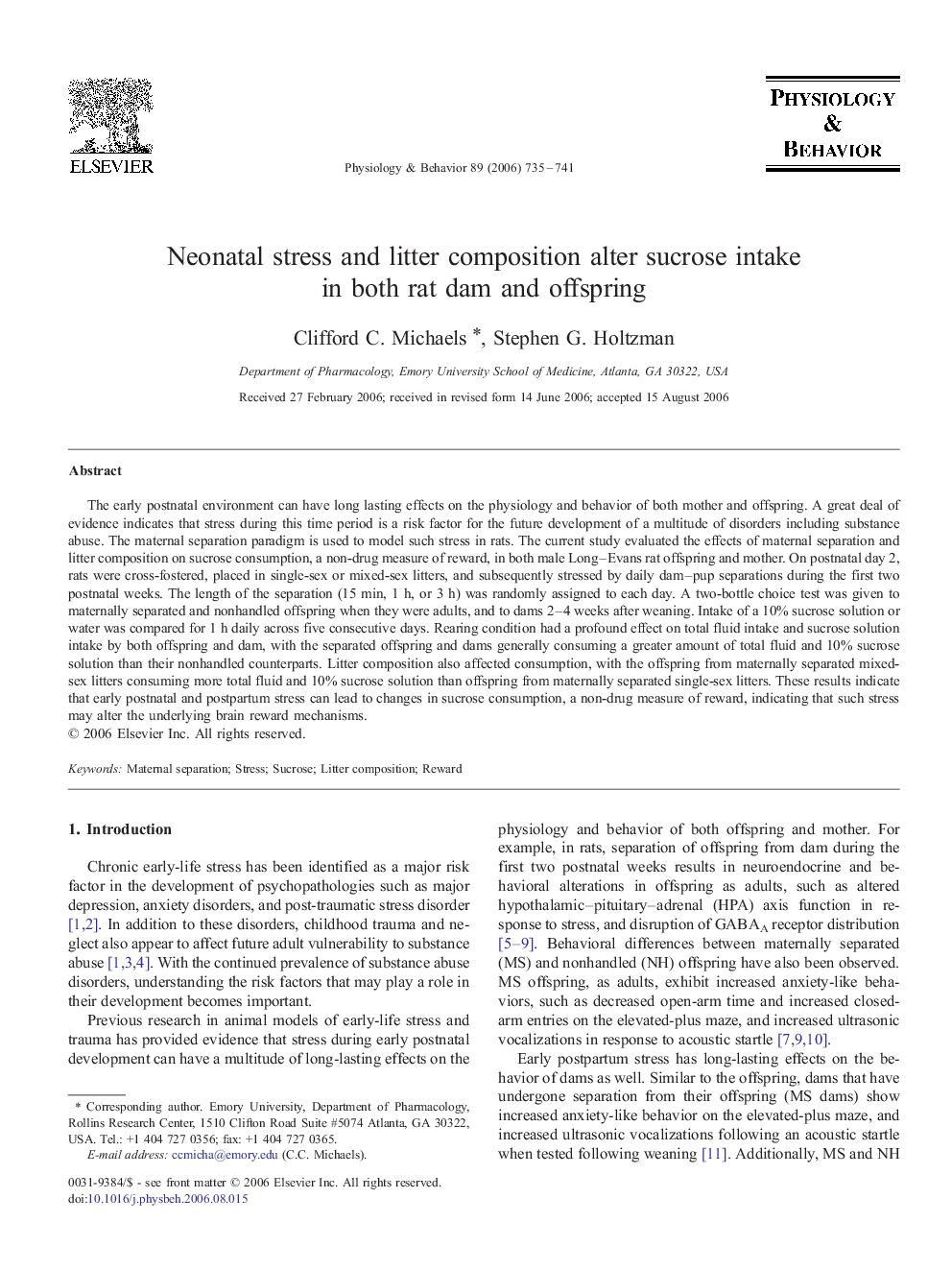| Article ID | Journal | Published Year | Pages | File Type |
|---|---|---|---|---|
| 2846168 | Physiology & Behavior | 2006 | 7 Pages |
The early postnatal environment can have long lasting effects on the physiology and behavior of both mother and offspring. A great deal of evidence indicates that stress during this time period is a risk factor for the future development of a multitude of disorders including substance abuse. The maternal separation paradigm is used to model such stress in rats. The current study evaluated the effects of maternal separation and litter composition on sucrose consumption, a non-drug measure of reward, in both male Long–Evans rat offspring and mother. On postnatal day 2, rats were cross-fostered, placed in single-sex or mixed-sex litters, and subsequently stressed by daily dam–pup separations during the first two postnatal weeks. The length of the separation (15 min, 1 h, or 3 h) was randomly assigned to each day. A two-bottle choice test was given to maternally separated and nonhandled offspring when they were adults, and to dams 2–4 weeks after weaning. Intake of a 10% sucrose solution or water was compared for 1 h daily across five consecutive days. Rearing condition had a profound effect on total fluid intake and sucrose solution intake by both offspring and dam, with the separated offspring and dams generally consuming a greater amount of total fluid and 10% sucrose solution than their nonhandled counterparts. Litter composition also affected consumption, with the offspring from maternally separated mixed-sex litters consuming more total fluid and 10% sucrose solution than offspring from maternally separated single-sex litters. These results indicate that early postnatal and postpartum stress can lead to changes in sucrose consumption, a non-drug measure of reward, indicating that such stress may alter the underlying brain reward mechanisms.
